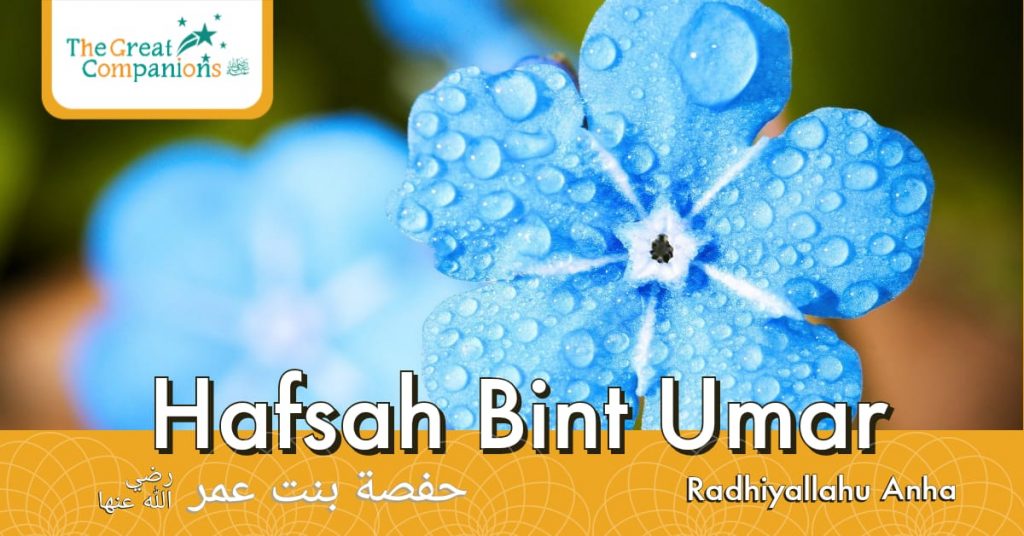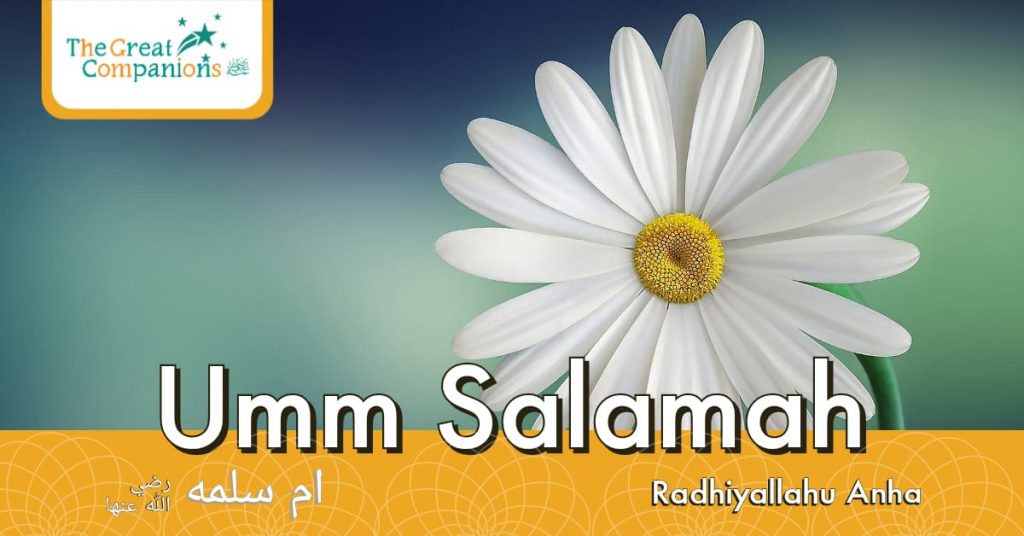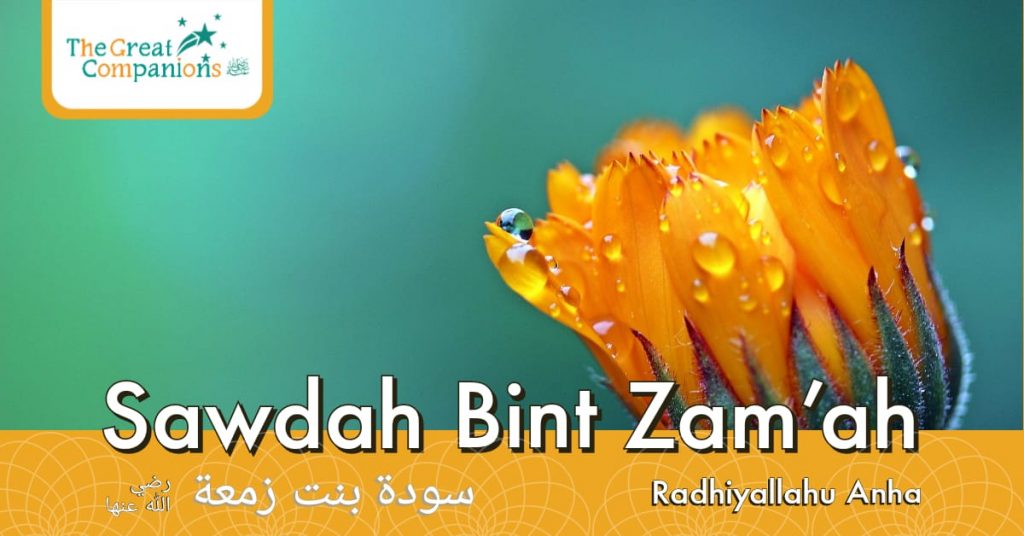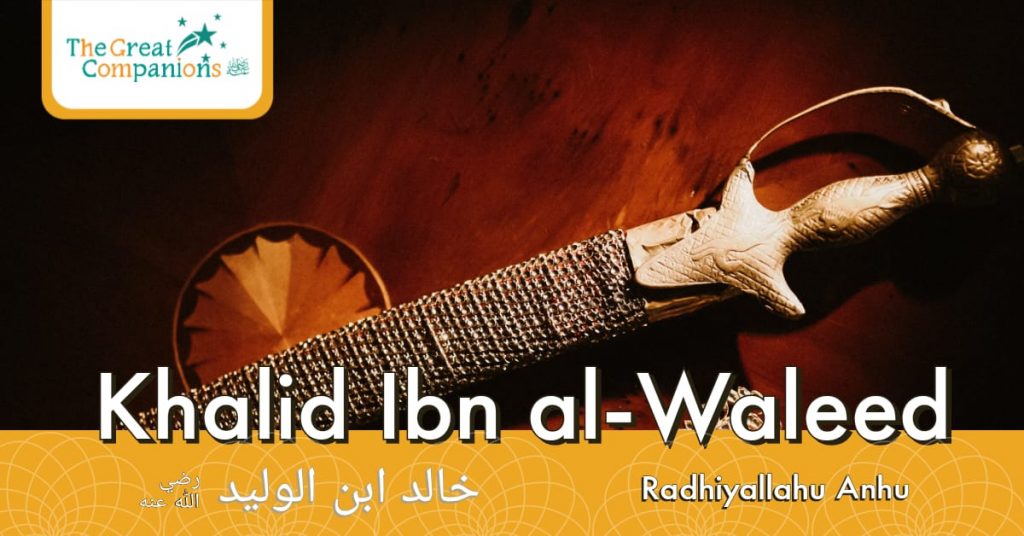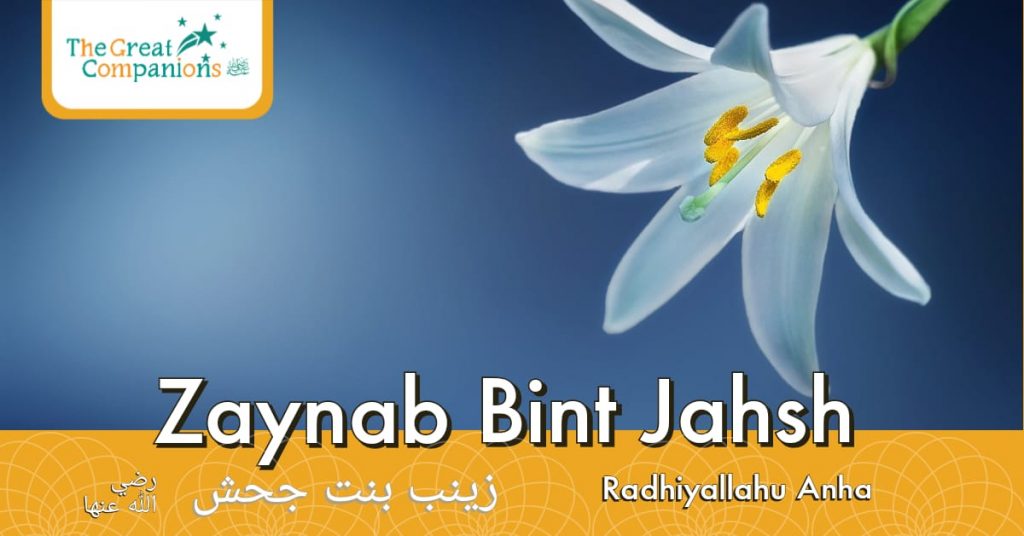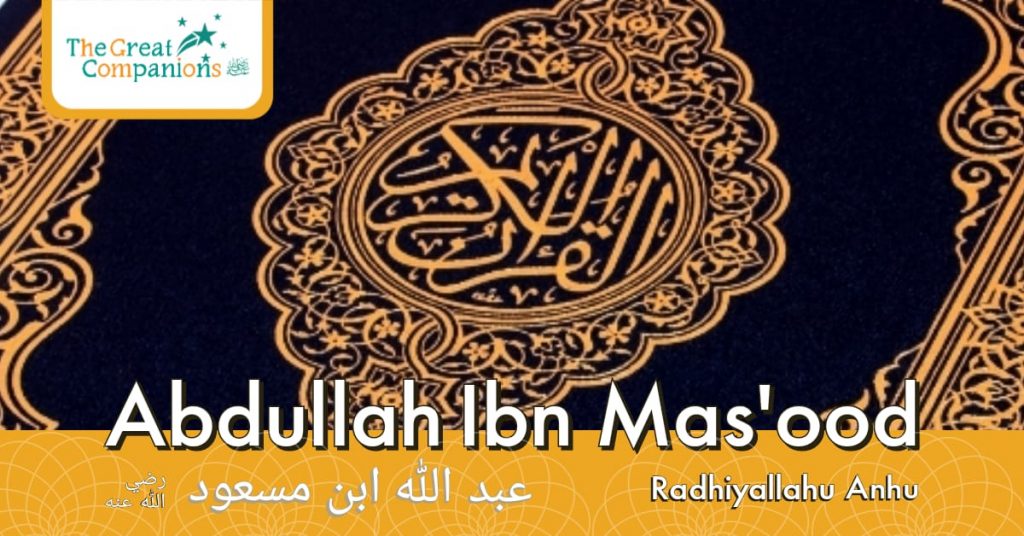The Great Companions – Hafsa Bint Umar R.A
A Glimpse in to the life, merits and qualities of a great companion of our beloved Nabi ﷺ, Hafsa Bint Umar رضي الله عنها
Listen to “Sayyidah Hafsa Bint Umar رضي الله عنها ” by Mawlana Junayd Makda Sahib
Who is Hafsa Bint Umar رضي الله عنها ?
- Name: Sayyidah Hafsa رضي الله عنها
- Titles: Ummul Mu’mineen
- Born: 30 years after our beloved Nabi sallallahu alayhi wasallam (18 BH)
- Demise: 34 years after our beloved Nabi sallallahu alayhi wasallam (45 AH)
● Sayyidah Hafsa رضي الله عنها was the daughter of Umar Ibn Khattab رضي الله عنه. Her mother’s name was Zaynab bint Maz’oon رضي الله عنها .
● She was known for her strong will, piety and thirst for knowledge.
● After the death of her first husband, Sayyiduna Khunays ibn Huzaafah Sahmi رضي الله عنه, who passed away due to injuries he sustained in the battled of Badr, our beloved Nabi ﷺ married her. It is through this blessed marriage, she attained the glorious title of: ‘Ummul mumineen’ (The Mother of the Believers).
● Sayyidah Hafsa رضي الله عنها was chosen to keep the first copy of the Glorious Qur’an and she very responsibly preserved it until the time of Uthman رضي الله عنه when the Glorious Qur’an was officially compiled.
● She was very pious and would regularly fast, and offer salaah. For this reason, she was referred to by Jibra’eel عليه السلام as Sawwamah Qawwamah (One who fasts and performs salah abundantly).
● Sayyidah Hafsa رضي الله عنها had the opportunity of living with our beloved Nabi ﷺ for eight years. After his demise, she continued to live in Madeenah for the remaining 34 years of her life and passed away aged 63 years. She was buried in Jannatul Baqi.
Qualities
1) Sayyidah Hafsa رضي الله عنها was true to her name and like her father was very determined and had a very strong will. (Note: Hafsa means lioness)
2) She was very reliable and trustworthy which is why she was entrusted with the Glorious Qur’an.
3) She had a great interest to learn deen and would not hesitate in respectfully asking our beloved Nabi ﷺ questions.
4) She was among the few fortunate people to have been educated. Especially among the women of that time this was very rare.
5) She was very regular with salah and fasting, hence Jibra’eel عليه السلام referred to her as sawwaamah and qawwaamah (the one who abundantly fasts and performs salaah)
Merits & Status:
1) Sayyidah Hafsa رضي الله عنها was among those praiseworthy companions who performed hijrah from Makkah to Madeenah. (Al Tabaqat al Kubra)
2) Jibra’eel عليه السلام came to our beloved Nabi ﷺ and said regarding her that, ‘….she fasts often and performs salah abundantly, and she will be your wife in Jannat.’ (Mustadrak Hakim)
3) When the Qur’an was compiled during the time of Sayyidina Abu Bakr رضي الله عنه it remained with him until his demise. It then remained with Sayyidina ‘Umar رضي الله عنه during his Caliphate. After he passed away, it went to Sayyidah Hafsah رضي الله عنها. Sayyidina ‘Uthman رضي الله عنه used it to re-compile it during his time. He returned it back to her and it remained with her until she passed away. (Ibn Hibban)
4) She narrated 60 ahadeeth from our beloved Nabi ﷺ.
5) She was a Hafizah of the Glorious Qur’an as she memorised it verse by verse as it was revealed.
Hafsa’s رضي الله عنها marriage to our beloved Nabi ﷺ
Following the death of Sayyiduna Khunays Ibn Hudhafa as Sahmi رضي الله عنه, shortly after the battle of Badr, Sayyidah Hafsa رضي الله عنها became a widow. Her father ‘Umar رضي الله عنه was worried for her and wanted to find her someone who would marry and look after her.
He first visited Uthman ibn Affan رضي الله عنه and offered his daughter for marriage. Sayyiduna Uthman رضي الله عنه after thinking over this proposal for a few days said, ‘I feel that I should not marry at this time.’
Sayyiduna Umar رضي الله عنه was somewhat disappointed by this reply and so visited Abu Bakr رضي الله عنه and offered his daughter in marriage to him. Sayyiduna Abu Bakr رضي الله عنه remained silent and did not give any reply at all. This was more painful for Umar رضي الله عنه than the reply from Uthman رضي الله عنه.
Some days later our beloved Nabi ﷺ proposed to her and married her.
It was now that Abu Bakr رضي الله عنه told Umar رضي الله عنه his reason for remaining silent. He explained that our beloved Nabi ﷺ had told him of his intention to marry Hafsa رضي الله عنها. This was a secret so he could not share this with Umar رضي الله عنه. He further explained that he did not wish to say no, as if our beloved Nabi ﷺ decided not to marry her, he himself would have married her.
This hadeeth shows the exemplary character/akhlaaq of the sahaba and many lessons can be learnt from it.
(Based on a hadeeth found in Bukhari)
Sayyidah Hafsa (رضي الله عنها) reports that our beloved Nabi ﷺ would not leave out four actions:
(1) Fasting on the day of Aashuraa,
(2) Fasting on the first ten days of Dhul Hijjah (i.e. besides the 10th),
(3) Fasting three days of every month,
(4) Performing two rakaats Sunnah before the fardh of Fajr.
(Nasai)
